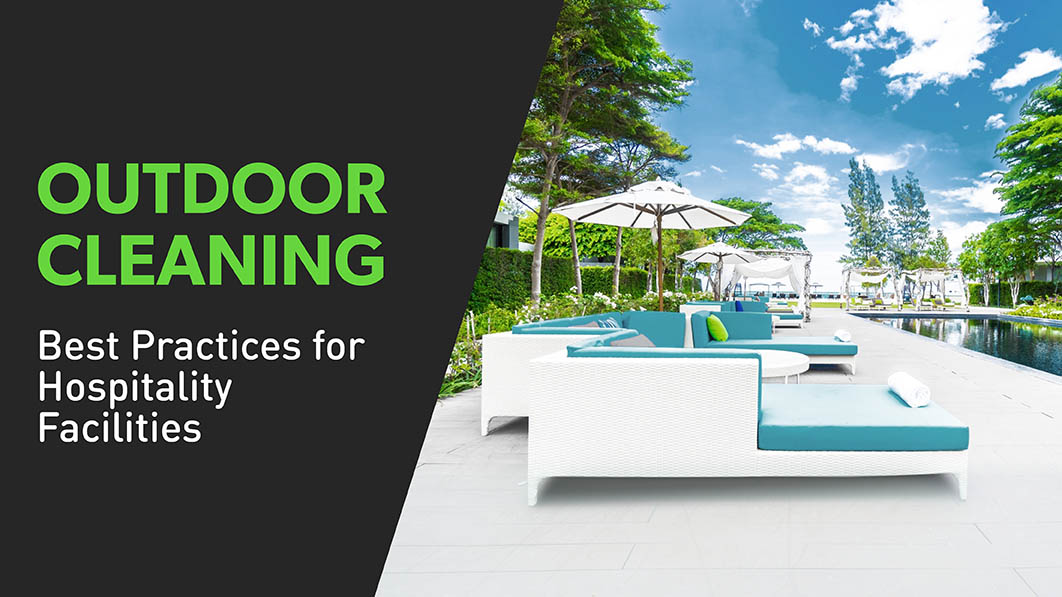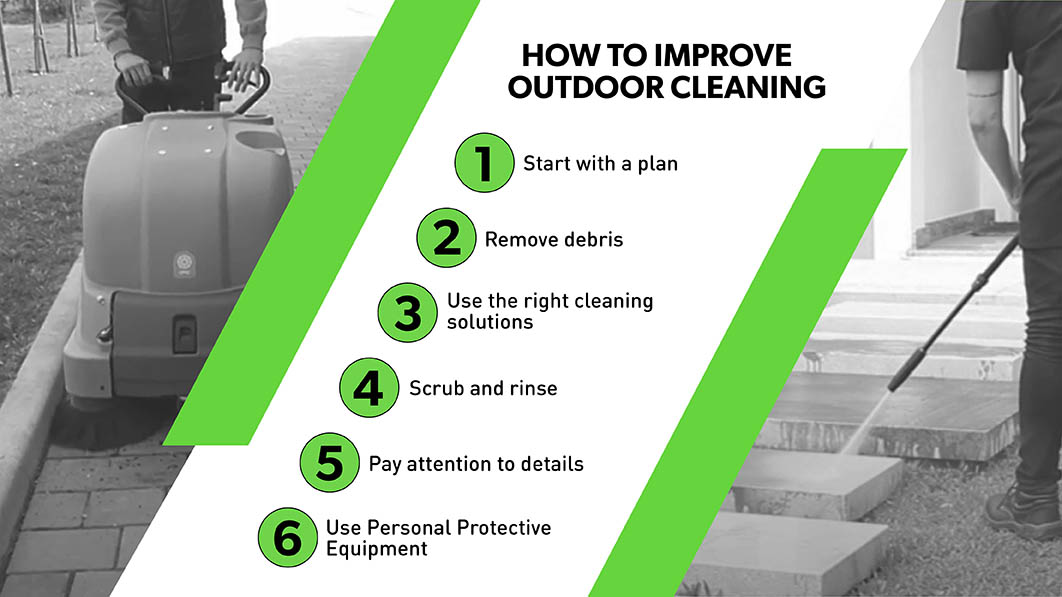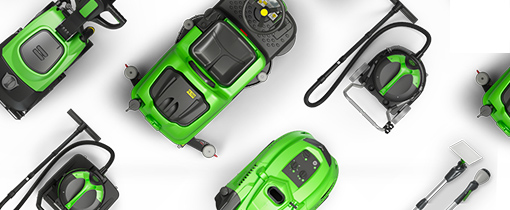
Estimate reading time: 5 minutes
As the world becomes more conscious about hygiene, maintaining the cleanliness of outdoor environments within hospitality facilities has become increasingly important. Outdoor areas such as gardens, pools, and patios are now viewed as extensions of indoor spaces, and keeping them clean is crucial for maintaining a positive image and ensuring the health and safety of guests.
Furthermore, it should not be overlooked that outdoor spaces are also exposed to factors such as weather and pollution, resulting in the accumulation of dirt and debris.
Maintaining a clean and orderly outdoor environment is also necessary to comply with health and safety regulations, and failure to do so can result in fines and damage to the venue’s reputation.
In this blog post, we discuss some of the best practices for cleaning outdoor hospitality environments.
1. Start with a Plan
The first step to cleaning outdoor hospitality environments and facilities is to have a clear plan in place. Identify which areas need cleaning and what tools and equipment you will require. You should also consider the time of day when cleaning will be most effective, and whether you need to close certain areas to guests while cleaning is underway.
2. Remove Debris
Before starting the actual cleaning, it is important to remove any debris, such as fallen leaves, twigs, and litter. This will make it easier to spot any areas that require more attention and prevent the debris from becoming a slip hazard or a source of contamination.
Ride-on or walk-behind sweepers can help keep the outdoor hospitality environments clean by collecting dirt, leaves, and debris from outdoor surfaces such as sidewalks, parking lots, and driveways. Sweepers work by using rotating brushes to collect debris in a hopper, which is then emptied into a proper bin or trash can. By using sweepers, large outdoor areas can be cleaned quickly and efficiently and the amount of required manual labor can be reduced.
3. Use the Right Cleaning Solutions
Different surfaces require different cleaning solutions. For example, wood and stone surfaces should be cleaned with a gentle cleaner, while concrete surfaces may require a more robust solution. It is important to choose cleaning solutions that are safe for both the environment and guests.

4. Scrub and Rinse
Once you have chosen the right cleaning solution, it is time to start scrubbing. Use a scrubber dryer or pressure washer to clean the surfaces thoroughly. Be sure to pay attention to any areas that are more heavily trafficked or that may be more prone to contamination.
Floor scrubber dryers are used to wash and dry hard surfaces such as patios, decks, and driveways. These machines work by using rotating brushes and cleaning solution to remove dirt from surfaces while simultaneously vacuuming dirty water into a recovery tank. This keeps the surface clean and dry, ready for use immediately.
High pressure washers, on the other hand, are used to remove dirt, debris, and other pollutants from a variety of surfaces, including walls, floors, and outdoor furniture. Through a high pressure water jet, they are in fact able to remove even the most difficult stains and dirt.
5. Pay Attention to Detail
When cleaning outdoor environments, it is important to pay attention to detail. This means checking areas that are often overlooked, such as the tops of tables and chairs, and cleaning them thoroughly. Additionally, you should be on the lookout for any areas that require repairs or maintenance, such as broken tiles or damaged furniture.
6. Use Personal Protective Equipment
Finally, it is important to use Personal Protective Equipment (PPE) when cleaning outdoor environments in hospitality facilities. This may include gloves, goggles, and masks. PPE will protect you from any potentially harmful chemicals or materials and ensure that you are able to clean effectively and safely.
In conclusion, cleaning outdoor hospitality environments is crucial for maintaining a positive image and ensuring the health and safety of guests. By following these best practices, you can keep outdoor areas clean and safe for all who use them.
For more information, please do not hesitate to contact us. We will be happy to provide you with all the necessary support.
